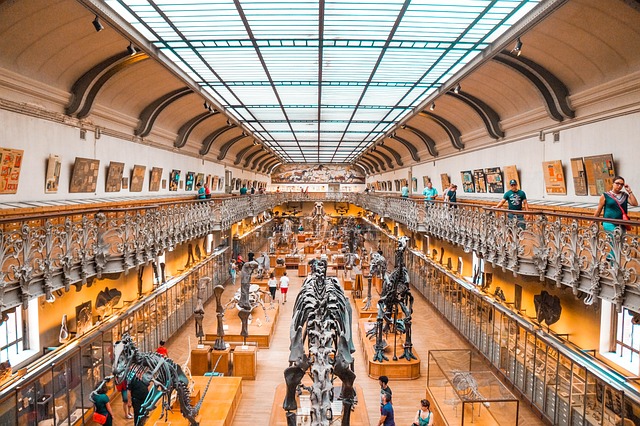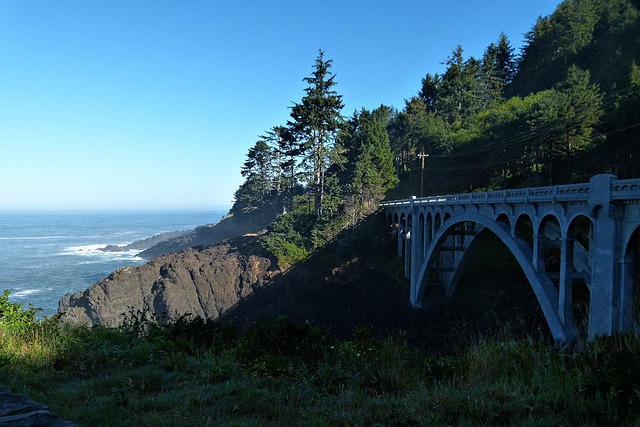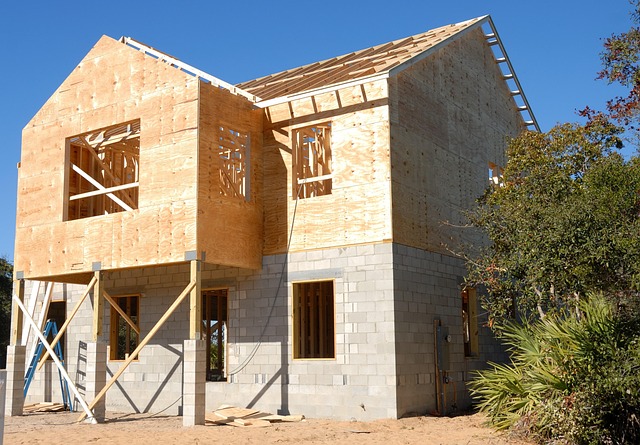The Great Depression profoundly affected Eugene, Oregon, once a bustling agricultural hub with a rich 19th-century history. Despite economic challenges, the city's resilience emerged from its pioneering past. Community initiatives and innovative solutions helped Eugene overcome disparities, fostering a strong social fabric. Eugene's founding history as a strategic riverfront settlement during the California Gold Rush showcases how community spirit and adaptability can forge a prosperous future, even in dire circumstances.
“Discover the resilient story of Eugene, a city that emerged from the shadows of the Great Depression stronger than ever. This period, marked by global economic turmoil, shaped Eugene’s identity through its early years of founding and growth. Delve into the historical context, witness the challenges faced, and explore how the community’s resilience left an indelible mark on this vibrant city. From its humble beginnings to today, Eugene’s legacy is a testament to overcoming adversity, with lessons that continue to influence its development.”
- The Historical Context of the Great Depression
- Eugene's Early Years: A Glimpse into Its Founding and Growth
- Economic Challenges and Resilience During the Great Depression
- Social Impact: How Eugene's Community Coped with the Crisis
- The Legacy of Eugene: Overcoming Adversity and Shaping a Stronger Future
The Historical Context of the Great Depression

The Great Depression, a pivotal moment in global economic history, casts a long shadow over the 20th century. This period of severe economic crisis began with the stock market crash of 1929 and lasted for a decade, profoundly affecting societies worldwide. In the United States, the impact was especially severe, leading to widespread unemployment, poverty, and social unrest.
Against this backdrop, Eugene, Oregon, stands as an intriguing case study. With a founding history dating back to the late 19th century, the city had established itself as a bustling agricultural hub by the 1920s. However, much like the rest of the nation, Eugene was not immune to the devastating effects of the Great Depression. The economic downturn exposed and exacerbated existing social and economic inequalities, forcing the community to adapt and innovate in response to the dire circumstances.
Eugene's Early Years: A Glimpse into Its Founding and Growth

Eugene, nestled in the heart of Oregon, boasts a rich history that dates back to its founding in 1852. The city’s inception was fueled by the California Gold Rush, attracting pioneers and dreamers alike. Its strategic location along the Willamette River became a pivotal point for trade and transportation, laying the foundation for future growth. As the years progressed, Eugene evolved from a modest settlement into a thriving urban center, driven by agriculture and its natural resources.
The early years of Eugene were characterized by a vibrant community spirit. Local farmers cultivated lush fields, and the river facilitated the transport of goods, fostering economic prosperity. The city’s founding history is intertwined with its diverse population, including European settlers and Native American tribes, each contributing to the unique cultural tapestry that remains evident today. This period laid the groundwork for Eugene’s eventual transformation into a vibrant metropolis, renowned for its lush landscapes and vibrant academic culture.
Economic Challenges and Resilience During the Great Depression

During the Great Depression, Eugene faced significant economic challenges like many American cities. The town’s founding history was marked by a strong agricultural base, but the nationwide economic downturn severely impacted local farms and businesses. Unemployment rates soared, and the once-bustling streets fell silent as many residents struggled to make ends meet. However, amidst the hardship, Eugene demonstrated remarkable resilience. Local communities came together to support one another, and innovative initiatives were launched to stimulate the economy. The city’s founding spirit of perseverance helped forge a path forward, with residents finding new ways to adapt and thrive despite the overwhelming circumstances.
Social Impact: How Eugene's Community Coped with the Crisis

During the Great Depression, Eugene’s strong sense of community emerged as a key factor in coping with the crisis. The city’s rich founding history fostered a spirit of resilience and mutual aid. Locals organized initiatives to provide food and shelter for those affected, reflecting a deep-rooted sense of solidarity. Neighborhood associations played a vital role, coordinating resources and ensuring no one was left behind. This collective effort created a supportive network that helped many Eugeneans weather the economic storm.
The crisis also prompted innovative solutions. Local businesses adapted by offering reduced prices and bartering services, while community gardens sprouted up to address food shortages. These grassroots movements not only sustained individuals but also strengthened the social fabric of the city. Eugene’s ability to mobilize its resources demonstrated that even in dire times, a united community could overcome significant challenges.
The Legacy of Eugene: Overcoming Adversity and Shaping a Stronger Future

In the face of immense adversity, Eugene’s history serves as a testament to resilience and innovation. Founded during challenging economic times, the city emerged as a symbol of perseverance, transforming from a struggling frontier settlement into a thriving metropolitan area. This remarkable journey is rooted in the pioneering spirit of its founders, who recognized the potential amidst the Great Depression. They laid the groundwork for a community that would not only survive but flourish, ensuring Eugene’s legacy as a place of strength and adaptability.
The city’s founding history exemplifies how creative solutions and a unified community can shape a brighter future. Today, Eugene continues to build on this foundation, embracing its past while shaping an inclusive, resilient, and economically robust future. This enduring spirit is a testament to the power of collective action during trying times, leaving a lasting impact on the nation’s landscape.














